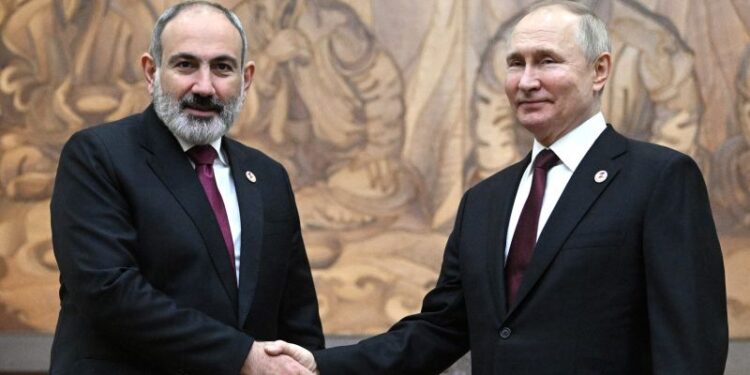The Nagorno-Karabakh crisis has laid bare Armenia’s deteriorating relations with Russia, once considered its closest ally. Russia has been embroiled in a long-running conflict between Azerbaijan and Armenia over the region since last year. A ceasefire was declared in April 2020, but tensions have remained high.
Russia has traditionally been a strong supporter of Armenia. Yet, in recent years, the Caucasus nation has been accused of shifting its allegiances away from Moscow. Armenia was one of the few former Soviet states not to join the Moscow-led Eurasian Economic Union and it has pursued closer ties with the European Union.
The Nagorno-Karabakh crisis has revealed further strains in the Armenian-Russian relationship. In recent weeks, Moscow has sought to play the role of peacemaker, but hasn’t been able to prevent an escalation of violence or a return to the previous status quo. The Kremlin has also made it clear that the fight for Nagorno-Karabakh lies beyond its direct sphere of influence.
What’s more, the crisis has laid bare the limits of Russia’s political and military clout in the region. The Kremlin has done nothing to prevent Azerbaijan’s steady territorial gains and its reliance on Turkey as an ally against Armenia.
The crisis has put additional strain on Armenian Prime Minister Nikol Pashinyan’s rule. He has been widely criticised for his handling of the crisis, further damaging ties with Moscow. Pashinyan has also faced criticism at home for displeasing Moscow and relying on the West for a solution to the crisis, something which, until recently, would have been considered unthinkable.
The Nagorno-Karabakh crisis lays bare Armenia’s deteriorating relations with Russia. While the Kremlin has tried to maintain an appearance of neutrality, it has failed to prevent the conflict from escalating and find a long-term solution. As a result, Armenia’s relations with Moscow have been strained and its reliance on Western powers has grown.

















